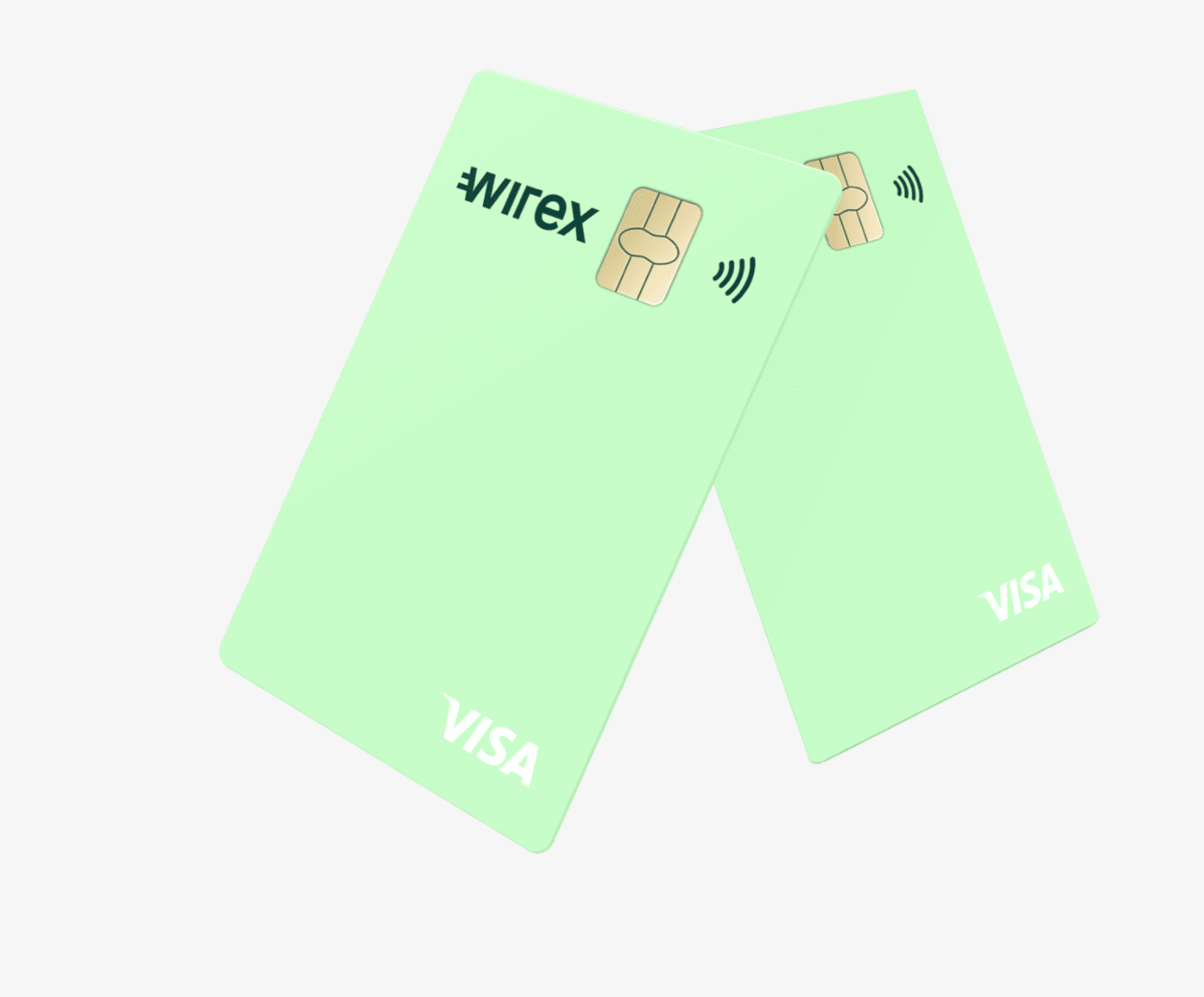A Bitcoin debit card works like a regular one used at grocery or drug stores. The difference lies in its funding: it’s loaded with Bitcoin (BTC) from a Bitcoin wallet, not with fiat currencies like USD or EUR. The card converts BTC to a supported fiat currency for payments when used.
The main advantage of Bitcoin debit cards is that they allow spending it anywhere conventional debit cards are accepted, whether online or in physical stores. However, there might be some limitations based on your location and the chosen card, which will be detailed in this guide below.
Choosing the best Bitcoin debit card
Before we proceed any further, the moniker “best crypto debit card” would perhaps be better in the context of this article considering that most of the best Bitcoin cards in use today also support many of the major altcoins such as Ethereum, Litecoin, and others.
Now, coming to the key things you should always keep in mind while choosing a crypto debit card, there are several considerations to make, including:
- Ease-of-use: Try and find out how easy it is to use various features and functionality including virtual or physical card use, options, linked exchange accounts, spending limits, and customer support etc.
- Reasonable fees: The lower, the better! Also, make sure that the fee structure is simple and transparent.
- Jurisdiction: Due to the lack of any coherent global regulatory framework to guide the cryptocurrency industry, it is possible that the card you choose will not be accepted in certain jurisdictions. You might want to take that into account to avoid future inconveniences.
- Security and reliability: Things to look out for on the security front include site encryption, two-factor authentication (2FA), instant SMS/email notifications, among others
Extra features: Besides the core functionality, it will be worthwhile to find out what additional features are there in your would-be cryptocurrency debit card. Compatibility with a diverse range of altcoins, payments and remittance services, banking services, cash withdrawals, forex-related services, etc. are a few of the additional features/services to look out for.
Added benefits: Wouldn’t it be great if you could pick up a few extra perks along the way such as discounts, referral programs, crypto back schemes, and so on?
Let’s take a look at the best cryptocurrency debit cards in 2025:
1. Wirex

Previously called E-Coin, Wirex is currently one of the most popular cryptocurrency debit cards in terms of both user-base and transaction volume.
Wirex offers a Chip & Pin Visa debit card that you can load using the Wirex app. You can also link the card with your debit and credit cards in addition to storing cryptocurrencies. Besides real-time crypto-to-fiat conversions, in-store purchases, and ATM withdrawals, you can also use the Wirex Visa Card to transfer funds for relatively low fees.
If you’re not much into plastic cards, Wirex also offers a virtual card. Both types support multiple cryptocurrencies and three major fiats including the USD, GBP, and EUR.
Wirex cards are currently available to Wirex account holders in EEA countries, although the company says it plans on adding North America and parts of Asia into the mix soon.
- Coins supported: BTC, DAI, ETH, LTC, XLM, XRP, WAVES, and many more
- Fiat supported: EUR, GBP, CAD, CZK, HUF, PLN, RON, HRK, USD
- ATM fee: Free
- Card issuance fee: Free
As you can see, transaction fees are lower compared to Coinbase. Furthermore, users are entitled to score up to 8% in crypto back offers, and 1000 WXT for each referral.
2. Coinbase
Coinbase offers its users a VISA debit card linked directly to their Coinbase account balance. Additionally, the Coinbase Card features cashback rewards and integrates seamlessly with the Coinbase ecosystem. This integration enables users to effortlessly fund their cards and liquidate their rewards through their Coinbase account, presenting an excellent choice for current Coinbase customers.
Previously, the reward rates observed on the Coinbase Card have varied across different cryptocurrencies. Bitcoin (BTC) offered a cashback of 1.5%, while Ethereum (ETH) provided a 1% return. Similarly, both USD Coin (USDC) and Dai (DAI) offered rewards at a rate of 1%. Notably, The Graph (GRT) stood out with a higher cashback rate of 4%.
3. Binance
Binance became the world’s leading cryptocurrency exchange by volume in 2018. Their 2020 alliance with Swipe led to the creation of a Visa debit card, renowned for its high 8% cashback rate, making it a top choice for cashback seekers. This card supports 15 cryptocurrencies, including Bitcoin and Ethereum, and charges no issuance or monthly fees.
However, it imposes a transaction fee of up to 2% for purchases and ATM withdrawals, with potential additional ATM operator fees.
The Binance Visa card resembles Coinbase’s model, holding cryptocurrencies in the user’s wallet and converting only the necessary amount for each transaction. Acceptable for online and in-store purchases wherever Visa is accepted, this card sets itself apart with a unique requirement: users must hold 600 BNB to qualify for the highest cashback rate, and the rewards are paid in BNB.
4. Crypto.com
Crypto.com’s debit card incentivizes users with up to 5% cashback rewards, especially for those staking substantial amounts of CRO, its proprietary cryptocurrency. The rewards scale up with the amount of CRO staked: higher stakes yield higher cashback percentages. Unique to this card, there are no annual fees, but a $4.95 monthly inactivity fee applies if the card remains unused. Additionally, the card offers subscription reimbursements for services like Spotify, Netflix, and Amazon Prime.
However, accessing these benefits requires users to stake CRO for at least 180 days, with ongoing staking necessary to retain the rewards. The top-tier benefit of 5% cashback is exclusive to users staking $400,000 in CRO. Furthermore, the card imposes tier-based ATM withdrawal limits, with the lowest tier, Midnight Blue, capping daily withdrawals at $200.
Maximize your rewards with Bitcoin debit cards
Bitcoin debit cards will only become more prevalent as the crypto market gains more adoption. There are many positive signs indicating that this might happen, including regulation that permits a wider use of crypto in the economy.Bitcoin debit cards can also have attractive incentives that make using crypto for payment more feasible. Whether it’s crypto back or interest rates, crypto holders may want to consider crypto debit cards to earn a little extra.
Frequently asked questions
What is a debit card?
Are crypto debit cards safe?
How do I open a crypto debit card?
Disclaimer
In line with the Trust Project guidelines, the educational content on this website is offered in good faith and for general information purposes only. BeInCrypto prioritizes providing high-quality information, taking the time to research and create informative content for readers. While partners may reward the company with commissions for placements in articles, these commissions do not influence the unbiased, honest, and helpful content creation process. Any action taken by the reader based on this information is strictly at their own risk. Please note that our Terms and Conditions, Privacy Policy, and Disclaimers have been updated.





